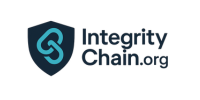Unicoin, Inc - The $100M Crypto Fraud That Never Launched

Unicoin, a flashy crypto startup founded in New York, marketed a token called the “Unicoin” as asset-backed and SEC‑compliant, promising wildly high returns. From February 2022 through early 2025, Unicoin raised over $100M via "Unicoin Rights Certificates"—securities sold to more than 5,000 investors. The SEC’s complaint (filed May 2025) alleges that Unicoin never acquired the promised assets, overstated its sales (claiming up to $3B, while actual sales scarcely exceeded $110M), and conducted unregistered offerings. Ceasing operations before any token distribution, the case is one of the most high‑profile crypto enforcement actions in 2025.
Timeline of Key Events
| Date | Event |
|---|---|
| Feb 2022 | Unicoin begins selling Rights Certificates |
| Nov 2022 | Announces "$200M in sales" milestone |
| Mar 2024 | Claims "$2B in sales"; later "$3B" by June 2024 |
| Early 2025 | SEC issues Wells notice (Dec 2024); monitors company |
| May 20, 2025 | SEC files civil suit against Unicoin and executives |
Key players: CEO/Chair Alex Konanykhin, former President Silvina Moschini, former CIO Alejandro Dominguez, and General Counsel Richard Devlin (who later settled separately).
Fraud Mechanics
Asset-Backed Claims That Never Materialized
- Unicoin touted billions in real estate acquisitions across Argentina, Thailand, Antigua, and the Bahamas.
- In Antigua, the SEC found internal communications expressed doubt the land was worth even $40M.
SEC complaint states:
“Purchased properties… purportedly with appraised values totaling more than $1.4 billion; in fact… actual combined value … no more than $300 million.”
Unregistered Sales and Misleading Marketing
- Sold Unicoin Rights Certificates to over 5,000 investors, promoting them via ads in airports, NYC taxis, TV, social media, and live events.
- Executives mischaracterized the offerings as “SEC-compliant,” “SEC-registered,” or “U.S.-registered”—though no registration had ever been filed.
The actualFabricated Sales Milestones and Demand
- Claimed sales figures: $200M (Nov 2022), $2B (March 2024), >$3B (June 2024).
The actual not exceed $110M. SEC:
“In fact, during the entire Relevant Period, Unicoin sold no more than $110 million in Unicoin Rights Certificates.”
Exploitation of Securities Exemptions
CEO Konanykhin allegedly sold nearly 38M rights certificates directly, including to investors disqualified from the offering, jeopardizing Unicoin’s claimed exemption. SEC:
“Konanykhin offered and sold over 37.9 million of his rights certificates to offer better pricing and target investors the company had prohibited from participating… to avoid jeopardizing its exemption…”
Financial Overview
| Metric | Reported by Company | Actual per SEC Complaint |
|---|---|---|
| Revenue from certificates | $3B+ | ~$110M |
| Investors reached | thousands | >5,000 |
| Value of purported asset backing | $1.4B+ | <$300M total property value |
| Tokens launched | Promised | Never launched |
| Returns promised | Up to 9,000,000% | Marketing hyperbole; no actual payouts |
Such discrepancies created a classic pump-and-dump fundraising model, where flashy sales statistics and asset promises initially propelled early investor interest—before the collapse.
Legal Charges & SEC Enforcement
Defendants Named
- Unicoin, Inc.
- Alex Konanykhin (CEO, Board Chair)
- Silvina Moschini (President / Board Member)
- Alejandro Dominguez (CIO / Investor Relations)
- Richard Devlin (General Counsel; settled separately)
Key Allegations
- Violation of Section 17(a) of Securities Act (fraud in offering securities)
- Violation of Section 10(b) of Exchange Act and Rule 10b‑5 (anti-fraud market manipulation)
- Violation of Sections 5(a)/5(c) (unregistered offering)
- Control person liability via Section 20(a) against Konanykhin, Moschini, Dominguez
- Devlin is separately charged for negligence under Sections 17(a)(2)&(3), settled for a $37,500 penalty, without admitting wrongdoing.
SEC Remedies Sought
- Permanent injunctions against defendants
- Disgorgement of ill-gotten gains with prejudgment interest
- Civil penalties
- Officer-and-director bars for Konanykhin, Moschini, Dominguez
- Nullify offerings and restitution for investors
Impact & Broader Implications
Investor Fallout
- Over 5,000 investors globally have been deceived; actual losses may average more than $ 20,000 per investor.
- No token was ever issued; investors only received worthless certificates.
- Unpaid refunds and legal restitution TBD via SEC enforcement.
Crypto & Regulatory Landscape
- Marks a high‑visibility crypto enforcement win post‑December 2024 Wells notice, signaling the SEC’s continued willingness to pursue claims even under a crypto-friendlier administration.
Industry Repercussions
- Heightened scrutiny on crypto startups promising "asset-backed" security tokens without substantiated value.
- Firms are now expected to prove registration status and actual asset backing.
Reputational Damage
- Konanykhin, Moschini, and Dominguez face personal penalties and reputational bans.
- The case damaged the credibility of crypto marketing hype and led to skepticism regarding celebrity endorsements and glamorous launch events (such as yacht promotions).
Key Lessons & Red Flags
- Be skeptical of fundraising claims—especially without independent audit or escrow verification of asset backing.
- “SEC‑compliant” or “registered” claims must be verified against official filings.
- Don’t rely solely on founder-provided PPMs and pitch decks—always verify with public filings or third-party sources.
- Watch for milestone claims, especially if sales figures jump dramatically without documentation.
- Selling unregistered securities to disqualified investors can jeopardize claimed exemptions, potentially enabling SEC enforcement.
SEC Quotes
“...marketing ‘milestone’ announcements included deferred sales… thus claiming sales five times larger than what Unicoin had actually sold.”
“Defendants misled investors about the fundamental attributes of Unicoin tokens… when in fact the company’s assets were never worth more than a small fraction.”
“The Promoting Defendants’ false statements were part of a multi-pronged fraudulent scheme to portray Unicoin Rights Certificates as investments in safe, stable, profitable… assets.”
Unicoin’s case is a defining moment in crypto regulation: token promises unfulfilled, assets never acquired, registration claims false, and millions lost. It exemplifies how startup hype—with bold marketing campaigns and inflated metrics—can create illusions of legitimacy. For regulators and investors alike, it underscores the need for stringent evidence of backing, verified filings, and cautious skepticism of unregulated offerings.



